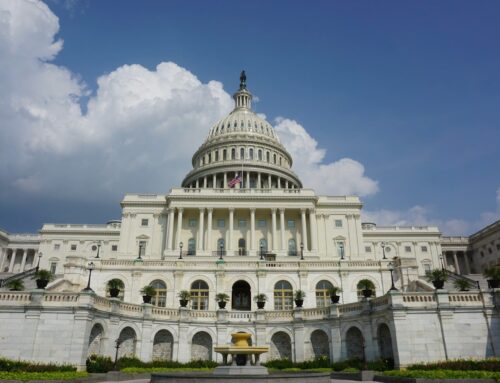The following are five important budget principles that should guide Congress in formulating the Fiscal Year 2003 federal budget.
- Reducing wasteful, duplicative, and unnecessary spending should be the highest priority for the Congress.
- After four consecutive years of surpluses, the federal budget is expected to show a deficit of $181 billion this year, not counting the Social Security surplus. Next year the non-Social Security deficit is expected to grow to $193 billion.
- Those deficit numbers alone are staggering, but they do not reflect major increases in spending for defense, homeland security, and other programs that will be recommended by the President in his budget and that enjoy bipartisan support in Congress.
- Furthermore, revenues can be expected to come in below optimistic projections, and general uncertainty about future economic growth is likely to continue for much of calendar 2002.
- With the need to fund the war against terrorism and fight recession at home, Congress will be under pressure to increase spending, and realistically it will most likely approve hikes in spending. But Congress should take every opportunity to eliminate unnecessary and wasteful programs.
- Taxpayers for Common Sense urges the President and Congress to use the return of deficits to aggressively root out and eliminate wasteful programs. Congress should approve the spending the country and the economy needs, but not all the spending special interests want.
- Congress should find the right mix of new spending and tax policies to balance the budget. Not counting the growing Social Security surpluses (which are our nation’s investment in the future viability of Social Security and Medicare), the federal budget will show a deficit for the next ten years. Congress should not allow that to happen. The budget should be balanced next year and in each succeeding year. That will require tough choices and setting priorities, but that is what taxpayers expect of our nation’s leaders.
- Military spending should not be immune to scrutiny. The President is expected to ask the Congress for an additional $48 billion for defense in his budget, the single largest increase in spending since the early 1980s. With the increase, military spending will be $379 billion.
The need to provide funds for the fight against terrorism is compelling. However, given the inability of the Pentagon to set priorities among the services and end outmoded weapons programs and congressional pork barrel tendencies, the pressure will grow to exceed the President’s request.
In addition, the recommendation to double spending for homeland security programs in the President’s budget is too much, too soon, and should be scaled back by Congress to ensure that the funds are spent wisely. Over a dozen federal agencies administer homeland security programs and overlap, duplication, and waste are certain to grow when a substantial injection of funds is made available. The agencies that receive the funds do not have the manpower or expertise to carry out their mandated responsibilities in a cost effective or efficient manner. Furthermore, since a large portion of the funding for homeland security goes to the states, Congress must ensure that taxpayer dollars are simply not funding programs where state funds are not available.
- A portion of the tax cuts enacted during 2001 should be deferred.
When Congress passed a $1.3 trillion tax cut during 2001, the Congressional Budget Office and the Office of Management and Budget were predicting ten year surpluses over $5 trillion. The latest Congressional Budget Office budget projection and the President’s fiscal 2003 budget project that the ten year surplus has narrowed to as little as $1.6 trillion. Facing such a drastic reduction, over the long-term the tax cut is less affordable, and will make balancing the budget and ensuring that the federal debt is reduced more difficult.
While the cost of the tax cut increases substantially in future years, Congress can and should make minor alterations that will over time result in substantial savings, while ensuring that the great bulk of taxpayers receive tax relief.
To achieve those goals, Taxpayers for Common Sense proposes that the new 10% bracket, the child credit and the marriage penalty reduction and the personal tax cuts be largely retained. These tax provisions will reduce the tax burden of the working and middle class families and are needed. However, to reduce the long-term cost of the 2001 tax plan, Congress should take these steps to ease the long-term costs of the tax cut:
- eliminate tax bill’s future cuts in the top four tax brackets
- retain the personal exemption phase-out
- drop estate tax changes (other than increasing the threshold to $1 million).
These minor changes to the Bush tax plan would save over $500 billion between 2003-2011.
- In preparing a budget, the President and the Congress should use conservative projections.
- Congress should return to five year revenue and spending projections. A ten year outlook is too long and unreliable and only makes it easier for Congress to project revenues in the long term to pay for spending in the short term. It is simply too easy to spend money now and hope to find revenue sources later.
- While the economy continues to improve, Congress should assume little economic growth this year and continued growth in unemployment. The recent growth of 0.2% in the economy is welcome news, but may be illusory. It is largely a result of government spending priming the pump, not new capital investment or spending that creates jobs.
Congress should not be tempted to look for any new economic news to build a case for more spending, or new and unaffordable tax cuts.











Get Social